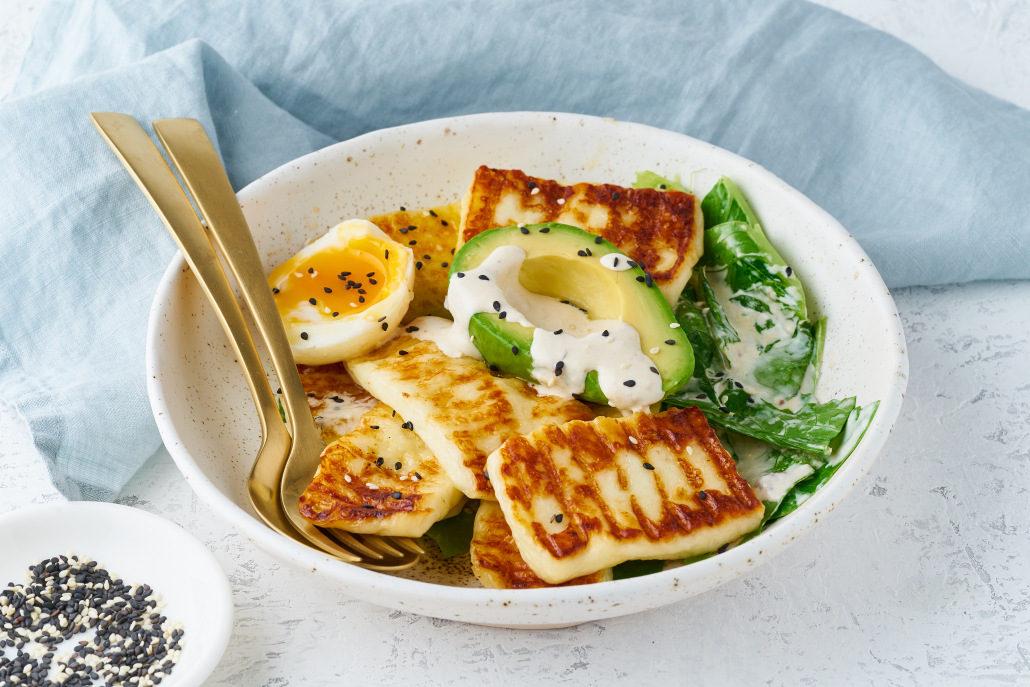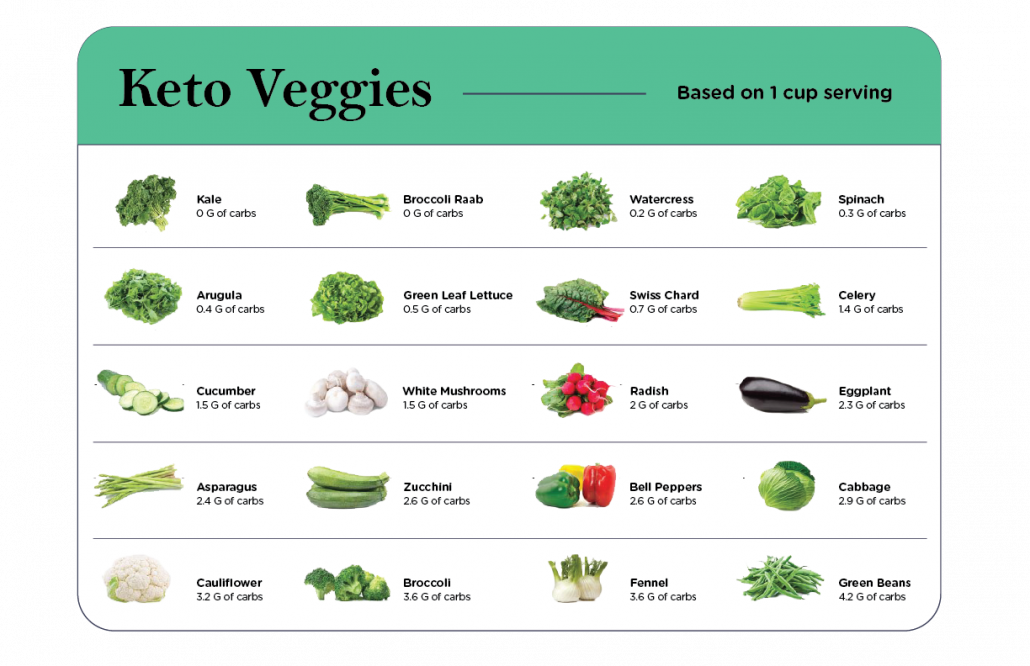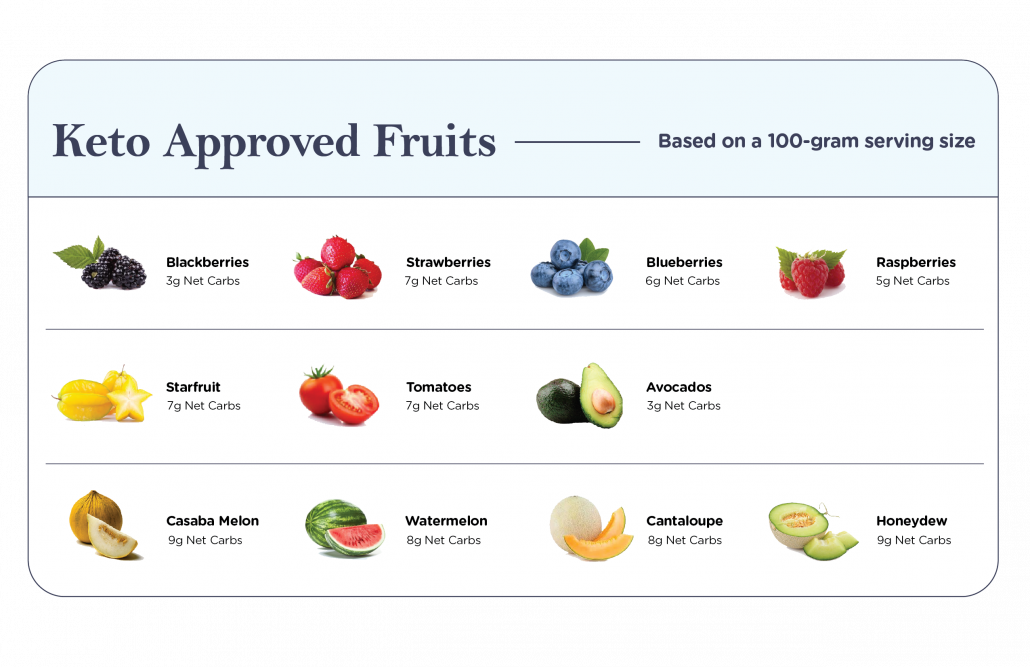We include products in articles we think are useful for our readers. If you buy products or services through links on our website, we may earn a small commission.
The Mediterranean Keto Diet: What is it and What to Eat?

Table of Contents
- Why Mediterranean Keto?
- What is the Mediterranean Diet?
- Mediterranean Diet Benefits
- Macros
- Traditional Mediterranean Diet Staples
- What is the Keto Diet?
- Benefits of the Keto Diet
- Keto Diet Staples
- Similarities Between Keto and Mediterranean Diets
- What is the Keto Mediterranian Diet?
- Benefits of a Ketogenic Mediterranean Diet
- Alternative Versions of Mediterranean Keto
- Mediterranean Keto Meal Plan
- Mediterranean Keto: The Takeaway
Why Mediterranean Keto?
Both the keto diet and the Mediterranean diet have been shown to offer powerful health benefits. Yet, for many people, a typical keto diet can seem overly restricting, extreme, or downright scary.
This fear is linked to decades of misinformation about possible (but largely debunked) health risks of red meat and saturated fat. It can be hard for people to accept that keto-friendly plates of fatty steak drenched in butter, and lattes brimming with heavy cream are good for them.
On the other hand, the nutritional establishment has spent the last 50 years valorizing the high-carbohydrate veggies, whole grains, and fruits that are common in the Mediterranean diet.
Dubious “healthy” claims aside, these high-carb whole foods are probably an improvement to the highly processed grain and added sugars at the center of the Standard American Diet.
However, high-carb foods cut off Mediterranean dieters from the rapid weight loss, and proven impacts that keto diets have on cancer , neurological diseases including Alzheimer’s and Parkinson’s , type 1 and type 2 diabetes, insulin resistance, metabolic syndrome, and cardiovascular disease.
When we combine keto and Mediterranean, the outcome is a way of eating that can be more comfortable and sustainable than a typical keto diet.
A keto Mediterranean diet is full of staples that most people think of as healthy like olive, fish, red wine, fresh cheese, yogurt, and low-carb veggies. Yet it still provides the powerful metabolic benefits of restricting carbs and running on ketones.
What is the Mediterranean Diet?
The popularity of the Mediterranean diet can be traced back to the famous Seven Countries Study, by nutritionist Ansel Keys in 1967.
The study was motivated by the new and alarming incidence of heart disease in American middle-aged men.
Keys and a team of international researchers looked at the diets of 13,000 men in the U.S. Japan, Italy, Greece, the Netherlands, Yugoslavia, and Finland. They found that men from Greece, Crete, and Italy had the lowest rates of heart disease.
The team correlated these findings with the Mediterranean diet’s focus on vegetables, grains, beans, fruit, and fish. Whereas the diets in U.S., Netherlands, and Finland where heart disease was the highest, were high in processed foods and animal fats.
Mediterranean Diet Benefits
Keys’ study has led to scores of follow-up research aimed at exploring his findings, though much of it tailored to support his views. However, some recent high-quality randomized control trials along with critical analysis of past studies give us confidence in the following findings:
- A Mediterranean diet supplemented with nuts and olive oil showed a 30% lower risk of heart events for men and women at risk for heart disease.
- 20% reduction in stroke for women in the UK between ages of 40-77.
- A study of 418 people eating a Mediterranean diet supplemented with nuts and olive oil has a 52% lower risk of type-2 diabetes. They did not lose weight or exercise more than the control group.
- A 2015 study found that women who ate a Mediterranean diet supplemented with olive oil had a 62% lower risk of breast cancer than the control group that ate a low-fat diet.
- An analysis of 41 observational studies (not randomized control trials) found that eating a Mediterranean diet led to 33% less depression when compared to a “pro-inflammatory” Standard American diet high in processed meats, added sugars, and trans fats.
It’s important to note that in each of these studies there was no causal link between vegetables, fruits, and positive outcomes.
Most benefits were likely due to eating whole foods instead of processed junk and getting fat from healthy sources, including olive oil, fish, fresh dairy, and moderately healthy nuts.
Macros
The macronutrient ratio of a Mediterranean diet depends on what you consider to be the real Mediterranean diet.
The typical Mediterranean diet promoted by American nutritionists has a macro breakdown of:
- 50%–60% of daily calories from carbohydrates: mainly grains, vegetables, starches, and fruits.
- 25%–35% of calories from fat, specifically from unsaturated sources in seafood, olive oil, and nuts, with some dairy.
- 15-25% protein from grains, seafood, nuts, eggs, and dairy.
However, leading Mediterranean researcher Dr. Antonia Trichopoulou found that a traditional Greek diet is “moderate fat” as opposed to low fat, with 40% carbs, 40% fat, and 20% protein.
Her study found these traits:
- Food is mainly from plant sources
- Vegetables are the main course.
- Weekly consumption of moderate to low amounts of fish and poultry.
- Red meat is consumed a few times per month.
- Daily moderate to low consumption of cheese and yogurt (mainly from sheep)
- 0-4 eggs per week
- Food is minimally processed and home-cooked.
- Seasonal and local foods are preferred, maximizing antioxidant properties.
- Olive oil is the main source of fat and is used for all cooking needs (there is no butter or margarine).
- Typical desserts are fresh fruit or yogurt with honey.
- Sweets high in fat and sugar (often honey sweetened) are consumed only once or twice a week and during holidays.
- Wine is consumed daily, in moderate amounts–one to two glasses per day with meals with men, one glass for women.
Traditional Mediterranean Diet Staples
Regional staples of the traditional Mediterranean diet include:
- Vegetables: Tomatoes, broccoli, kale, spinach, onions, cauliflower, carrots, Brussels sprouts, cucumbers, etc
- Fruits: Figs, apricots, citrus, grapes, dates, berries, melons, peaches
- Nuts and seeds: Almonds, hazelnuts, pistachios, walnuts, cashews, pumpkin seeds, sesame seeds, sunflower seeds.
- Legumes: Beans, peas, lentils, pulses, peanuts, chickpeas
- Tubers: Potatoes, sweet potatoes, turnips, yams, etc.
- Whole grains: Whole oats, brown rice, rye, barley, corn, buckwheat, whole wheat, whole-grain bread, and pasta.
- Fatty fish and seafood: Salmon, sardines, mackerel, trout, tuna, shrimp, oysters, clams, crab, mussels.
- Poultry: Chicken, duck, turkey
- Eggs: Chicken, quail, duck
- Dairy (much of it sheep): Cheese, yogurt
- Herbs and spices: Salt, pepper, garlic, basil, sage, mint, rosemary, nutmeg, cinnamon
- Fats: Extra virgin olive oil, olives, avocados
NOTE: Red meat, sugar-sweetened beverages, added sugars, processed foods, refined grains, and refined oils are all rare, and should be avoided.
What is the Keto Diet?
The ketogenic diet (keto for short), is a low-carb, high-fat way of eating.
A ketogenic diet means limiting carbohydrate intake to less than 50 grams per day (often to less than 20) while allowing adequate amounts of protein and a higher fat intake. This usually breaks down to around:
- 70-80% of calories from fat
- 15-30% calories from protein
- 0-10% calories from carbohydrates
Ketosis
Restricting carbs triggers your body to switch from using glucose for fuel, to breaking down fat from your food and from stores on your body. The liver turns this fat into highly efficient fuel molecules called ketones. When enough ketones are circulating in your body, you are in the metabolic state called ketosis.
Benefits of the Keto Diet
As the most searched diet on Google with 25.4 million searches in 2020 alone, science is trying to keep up. Recent studies have shown that a keto diet can:
- Improves blood lipid levels.
- Improve insulin sensitivity.
- Reduce the severity of type 2 diabetes, fatty liver disease
- Reduce and reverse symptoms of PCOS
- Treat certain types of cancer
- Reduce and slow the progression of neurological disorders, including epilepsy, Alzheimer’s disease, and Parkinson’s.
- Lead to significant weight loss
- Make meals more satiating, reducing cravings for processed and high-carb foods.
- Regulate inflammation and increase immunity.
- Help your body absorb fat-soluble vitamins (K, D, E, etc).
Keto Diet Staples
The majority of calories on a keto diet come from high-fat staples, including:
- Fatty meats like ribeye steak
- Organ meats
- Eggs
- High-fat dairy: hard cheeses, cream, butter, ghee, full-fat yogurt
Vegan and Vegetarian Keto Staples that can be included in Typical keto:
- Nuts and seeds: macadamias, walnuts, sunflower seeds, etc.
- Avocado
- Low-carb berries: raspberries, blackberries
- Coconut oil
- Olive oil
- Low-carb vegetables: spinach, kale, broccoli, and cabbage.


Keto cuts out all:
- Grains: wheat, corn, rice, cereal, etc.
- Sugar: honey, agave, maple syrup, etc.
- High-carbohydrate fruit: apples, bananas, oranges, etc.
- Starches: potato, yams, corn, etc.
Similarities Between Keto and Mediterranean Diets
Key similarities between keto and Mediterranean diets worth noting are:
- When compared to the Standard American diet, both improve important biomarkers, including cholesterol, triglycerides, blood pressure, and blood sugar levels.
- Keto typically leads to greater short-term weight loss, but studies reveal that in the long term (1-2) years, both diets return similar weight loss.
- Statistically speaking, they are both equally easy (or difficult) to follow. Studies show a 24% dropout rate for both.
- The most significant similarity in terms of health impacts is that both keto and Mediterranean diets cut out processed fats, carbs, and added sugars.
What is the Keto Mediterranian Diet?
Simply put, a keto Mediterranian diet takes all the keto-friendly foods found in a traditional Mediterranean diet and constructs an eating plan that meets the keto low-carb, high-fat macronutrient ratios.
Key Features of a typical Mediterranean keto diet include:
- No calorie restricting
- Fish and seafood as the primary source of protein and animal fat
- Olive oil as the primary source of added fat
- Green vegetables and salads as the main source of carbohydrate
- Enjoy around 1-2 cups (200-400ml) of red wine per day
Benefits of a Ketogenic Mediterranean Diet
To get a better idea of what this looks like, let’s dive into the impressive study looking at the benefits of what researchers called the Spanish Keto Mediterranean Diet (SKMD).
The caloric intake was not restricted during the three-month trial involving 22 obese men. The meals consisted of:
- Fish for more than four days a week.
- Over 2.2 lbs of fish per day: mostly sardines, trout, salmon, and mackerel
- When not eating fish, participants ate shellfish, poultry, eggs, and cheese.
- Over 15 grams of Omega-3 fats on days when eating fish and supplemented with 9 grams of fish oil on days when not eating fish.
- Lots of red wine! 200-400 ml of red wine per day.
- A minimum of 20 ml, or 2 tablespoons of olive oil a day. 10 ml per meal
- A daily maximum of 1 portion of low-carb vegetables like cauliflower, broccoli, and eggplant
- A daily maximum of 2 portions of salad
- A full-spectrum vitamin and mineral supplement
After 12 weeks the study found that on average:
- Participants lost at least 30 pounds!
- At the beginning of the study, all 22 participants had metabolic syndrome ( co-occurrence of a number of biomarkers related disease and premature death) After just 12 weeks all participants no longer had metabolic syndrome.
- They lost 6 inches (16 centimeters) from their waist
- Their body mass index (BMI) dropped from 37 to 31.5: A change from class 2 obesity to the low end of class 1
- Their fasting blood sugar levels dropped from a pre-diabetic 118 to an ideal 91
- Good HDL cholesterol increased from 44 to 58
- Triglycerides dropped from 224 to 109
- They went from “prehypertensive” to “normotensive”
- Markers for fatty liver disease including liver enzymes and liver fat reduced, and in some cases completely resolved
It is interesting to note that though most participants were still on the lower scale of obesity after 12 weeks, their metabolic syndrome was completely cured. This tells us that it wasn’t losing weight that cured the metabolic disease. Rather, these dramatic metabolic changes can be attributed to the power of the diet itself.
Alternative Versions of Mediterranean Keto
Some people gravitate to the Mediterranean keto diet because it offers many fat and protein alternatives to red meat while making space for a variety of vegetables.
But there’s also good news for people wanting to reap the superfood benefits of red meat and organ meats while enjoying the heart-healthy benefits of Mediterranean eating.
A 2018 study found that adding up to 18 ounces of fresh red meat to Mediterranean-style eating, is just as effective at improving heart disease risk factors including blood pressure and total and LDL cholesterol, as a meat-limiting Mediterranean diet.
Mediterranean Keto Meal Plan
Coming up with a keto Mediterranean diet plan isn’t hard. Here are a few sample meal ideas.
Sample Mediterranean Keto Diet Meal Plan
Breakfast
Mediterannean keto Greek keto frittata. Loaded with healthy fat from eggs, plain full-fat yogurt, feta and mozzarella cheese, and olive oil. Brought to the next level of Mediterranean flavor with pepper, fresh oregano, basil, zucchini, and a modest amount of diced tomatoes.
Lunch
Five-minute Mediterranian keto bacon lettuce wraps will keep you fueled when you’re on the go. Bacon, avocado, labneh (Middle Eastern cheese from strained full-fat yogurt), mayonnaise (olive oil-based), fresh basil, lemon juice, salt, pepper.
Dinner
Salmon with olive oil (lots), fresh rosemary, salt, and pepper. Or apply these dressings while making the most of your red meat night with decadent lamb chops.
Mediterranean Keto: The Takeaway
The Mediterranean Keto diet takes Mediterranean staples like fresh unprocessed seafood, low-carb veggies, olive oil, full-fat dairy, and red wine, and tailors them to a keto macronutrient ratio.
Most people are already familiar with the benefits of a Mediterranean diet that replaces processed foods with fresh whole foods.
A Mediterranean keto diet takes these benefits and adds the dramatic improvements associated with ketogenic diets. These include protection against neurodegenerative diseases, many forms of cancer, metabolic disease, insulin resistance, and infertility.





















